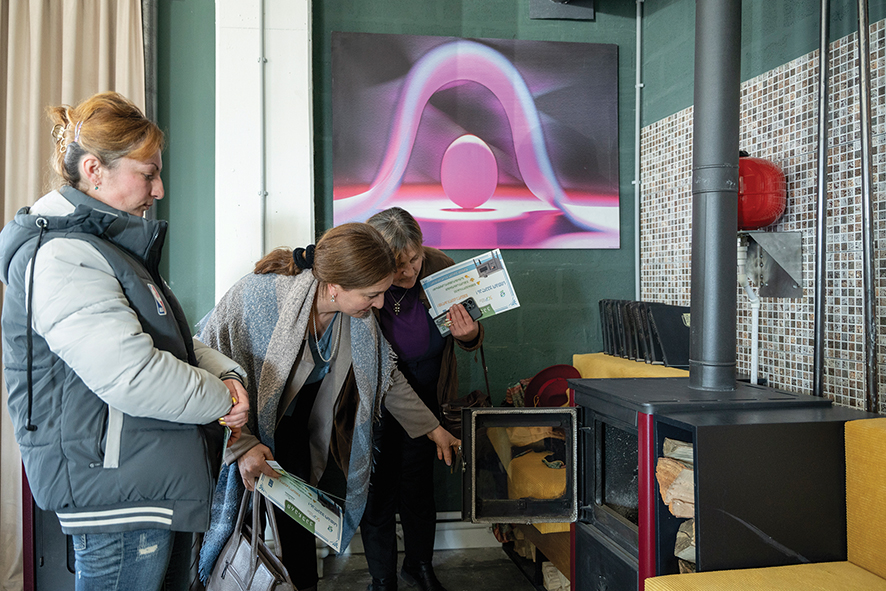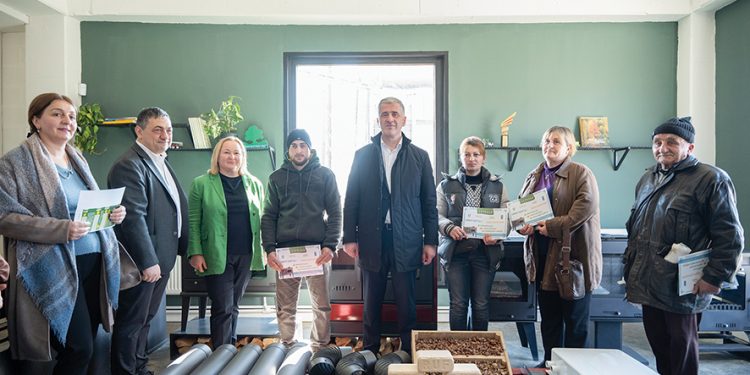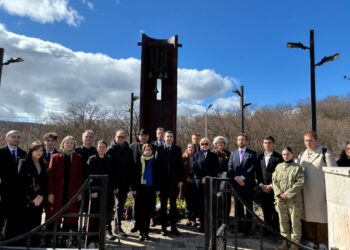In a collaborative effort between the United Nations Development Program (UNDP), the Global Environment Facility’s Small Grants Program (GEF SGP), the Biomass Association of Georgia, and several highly responsible enterprises – Esco, Dio, PSP, Clean World, Diamed, and the Reproductive Clinic of Zurab Sabakhtarashvili, socially and economically vulnerable families in Georgia’s highlands are being equipped with stoves and locally sourced solid biomass to burn in them as an alternative to firewood. To date, 57 families have benefited from this project, receiving the new, energy efficient stoves free of charge.
This initiative is part of a bigger campaign that includes educational and informational efforts, such as ‘Energy Buses,’ which have already traveled through 50 municipalities to promote energy efficiency. Demonstrations are planned in Adjara, Racha-Lechkhumi, and Samegrelo in 2024-25, aiming to continue raising awareness.

According to Anna Chernyshova, UNDP Deputy Resident Representative in Georgia, “Cultivating energy-efficient technologies is an important step toward environmental protection. The forest degradation process can be reversed by reducing unsustainable firewood practices in highland villages.”
Zaal Kheladze, Director of the Biomass Association of Georgia, also emphasized the broader implications of the project, stating that it contributes to environmental protection, poverty reduction, and gender equality.
“Access to a clean and healthy environment is the fundamental right of all humans, recognized by the UN General Assembly. Fostering reusable energy is a step forward in achieving sustainable goals and prevents woodland from being destroyed,” noted beneficiary Irma Tskipurishvili from the village of Shupakho.














